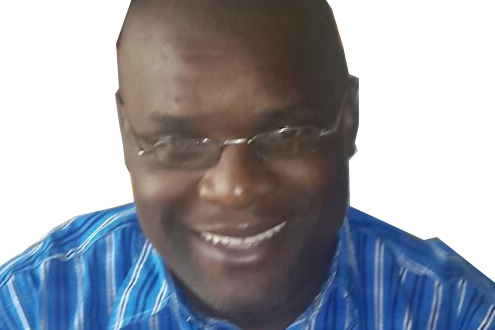
Recent announceme-nts by the Meteorological Services Department about the fact that our country is likely to receive normal to below normal rainfall, is a cause for concern. Not that it’s going to be the first drought our country will suffer, but this drought is coming at a time when we are going through a difficult period characterised by poor performance of our economy, where unemployment levels are just alarming.
BY KUDZA KWANGWARI
If these forecasts are accurate, then we will have a situation where 60% of the country’s population based in rural areas relying more on exploiting the environment directly being adversely affected. This is also coupled by the fact that urban agriculture, which has taken root of late, from which some urban-based communities have been getting significant food supplements, will also suffer a blow. This is worsened by the large number of people who lost their jobs this year following the July 17 Supreme Court ruling.

We expect the Zimbabwe Vulnerability Assessment (Zimvac) to provide useful early warning information for accurate and appropriate response mechanisms.
There is no doubt that these are effects of climate change and things seem to be getting worse, if one looks at the rainfall patterns and general weather conditions. In countries where there are locally-based communication platforms, where people can engage and share critical information, they have a better way of responding to climate change. Due to the awareness, they have at their disposal strategies and information on the kind of farming and food security promotion measures applicable. Each time the issue of climate change comes under discussion, it ends up bringing the aspect of community broadcasting as a key tool for responding to effects of climate change.
Community radio is naturally a disaster response mechanism tool which assists communities to collectively proffer solutions to their own situations. A number of community radio initiatives are already playing a very important role in promoting rewarding farming practices. For instance, in Gwanda, Matabeleland South, the Ntepe community radio initiative is helping disseminate useful information on farming. This includes advice on the type of crops to grow given the low rainfall expected, and how to take care of crops and animals. Gwanda is a cattle-rearing area and the community radio has been playing a key role in linking the farmers with markets that offer good returns. As a result, the community of Gwanda has embraced the community radio, including the traditional leadership who now pray that the licensing of these facilities will be done expeditiously.
Community radio promotes generation of inclusive solutions which empower communities to deal with their own situations. It promotes urgency on the part of communities so that they don’t always wait for government to do things for them. B. Harvey (2011) asserts that community radios have a very critical role to play in investigating, communicating and engaging in broader debates on the impacts of climate change on vulnerable communities in Africa, giving an example of Ghana and Climate Airwaves Project by Ghana Network of Community Radio.
- Chamisa under fire over US$120K donation
- Mavhunga puts DeMbare into Chibuku quarterfinals
- Pension funds bet on Cabora Bassa oilfields
- Councils defy govt fire tender directive
Keep Reading
First Lady Grace Mugabe has been going around the country seemingly complaining about lack of development and how communities that she is visiting stage-manage a different picture of the situation in order to impress her. If the First Lady surely believes that pressure must be put on those in government, particularly those holding ministerial posts, to perform, then she must believe in a situation where citizens themselves engage in government performance monitoring. There is no better tool than a community radio in terms of public-based government performance monitoring, where various communities are able to deliberate using own platforms, including engaging their local leadership and bringing them to account. Surely, this is better if its done by all Zimbabweans than by the First Lady, when she chooses. The real boss of these appointed people is the people of Zimbabwe who must be in a position to re-elect them or fire them. This way, elections are based on substance and not an empty name of a political party. Oftentimes, many politicians are voted into office because of the party they belong to without the electorate really gauging the performance of the candidate.
So community radios should be a real game-changer for all Zimbabweans and we are better off with licensed community radios than without. There is no need to delay on this development, considering that they are already contributing to the development of our communities. On the part of government and especially the Information and Broadcasting minister Christopher Mushohwe, to delay this using flimsy excuses like “definition of community” or sustainability or regime change, is a disservice to the Zimbabwean community. Community radio is an idea whose time has come and no political dreams can stop it. The propensity and appetite to control information flow in a modern community will unfortunately not work for long because of technological advancement. As we speak, people are already sharing information in audio form using the WhatsApp platform. Various community radio initiatives are also harnessing these ICTs and mobile platforms to promote access to information and free expression. I am not sure whether you are going to demand for whatscasting licence sooner or later, but you would rather create an environment where the media can play a role in promoting development than to frown upon free media.
Kudzai Kwangwari is a community media activist who writes in his personal capacity. He can be reached on [email protected]. Cell: 0775 093 384.











